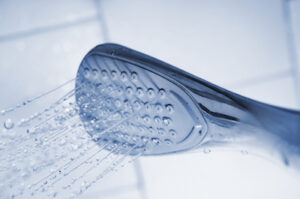Getting The Most Out Of Your Hot Water
Hot water is a necessity for every home and most of the time it isn’t free. Not just that, but water tanks aren’t limitlessly full of hot water. And if you have a house full of people like me, it seems like there is never enough hot water! And that can be frustrating when you are trying to take a relaxing bath before bedtime.
So if this is something you have struggled with then you’re in the right place! In this article, I will share some helpful tips and tricks to help you make that hot water last a bit longer. (and likely save you some money in the end too!)
So let’s get started, here are 7 tips for how to make hot water last longer:
- Check your water heater settings
- Replace your water heater
- Insulate your water heater
- Install a low-flow showerhead
- Take shorter showers or opt for a bath
- Do laundry with cold water
- Avoid letting the faucet run when not using it
You have probably already heard some of these tips before, but maybe there are a few new ideas you can try! You would be surprised at the difference it makes implementing these tips. For more on why these tips work to conserve hot water, keep reading.
Check Your Water Heater Settings
One of the best ways to make sure you’re getting the most out of your hot water is to check your water heater’s settings. You likely have it at a higher temperature than you need. If you lower it just a couple of degrees, that will help conserve hot water and make it last longer. You should only adjust the temperature by a couple of degrees as messing with it too much can lead to problems like scalding and broken pipes.
Replace Your Water Heater
Replacing your water heater is another way to make sure you’re getting the most out of your hot water. Old water heaters tend to not be as efficient as newer models. If your water heater is more than 10 years old, it might be time for a replacement. Not only will this save you money on your energy bill, but it will make your hot water last longer.
Newer models tend to be more efficient and will heat the water faster and more efficiently. This will make it less likely that you run out of hot water before you end the day. Check out the end of the article for how to know it’s time to replace your water heater.
Insulate Your Water Heater
Another thing you can do to help make your hot water last longer is to insulate your water heater. This will help keep the heat in, meaning you won’t have to waste energy heating it back up again and again. You can buy insulation for a water heater very cheaply and it’s an easy installation process. You can even do it yourself, making it a very cost-effective way to increase the efficiency of your hot water tank.
Install A Low -Flow Showerhead
Installing a low-flow showerhead is a great way to save water and make your hot water last longer. This type of showerhead restricts the flow of water, making it slower but just as effective. You likely won’t even notice the difference in terms of how you feel when taking a shower. But you will notice the difference in your water bill at the end of the month!
A low-flow showerhead is a great way to save water without having to make any big changes to your lifestyle. And it’s a quick and easy installation, so there’s no reason not to do it! You may also consider updating other fixtures around the house, like your faucet or toilet.
Take Shorter Showers Or Opt For A Bath
Another way to make your hot water last longer is to consider taking shorter showers. I know this is usually the advice nobody wants to do, and it’s a hard habit to break. Rather than try and completely change your daily routine, try baby steps. Try taking shorter showers on the weekdays and splurge with long ones on the weekend. Or try a short shower every other day maybe alternating with a roommate or spouse.
Also, did you know that baths use less hot water than showers? A typical bath uses about 2 gallons of hot water per minute, while a shower uses closer to 5 gallons. So if you are looking for ways to save on your utility bill and extend the life of your hot water tank, consider switching to baths!
Do Laundry With Cold Water
This one isn’t just a tip for saving hot water, it’s good for your wallet too. Washing clothes in cold water can help you save money on your utility bill and extend the life of your hot water tank by reducing how often you run out of hot water. It’s a misconception that clothes need to be washed in hot water to truly get clean.
Here are a few reasons why you want to wash your laundry in cold water:
- Better for the color of your clothes. It helps prevent color bleeding and fade, keeping your clothes looking newer longer.
- Keeps them from shrinking. Washing in hot water can make fabrics like cotton shrink, which makes clothes fall apart more quickly.
- Save you money. Washing your clothes in cold water will keep them just as clean and fresh, but it will reduce how many times you run out of hot water. This means you won’t have to do laundry as often, meaning less wear and tear on your washing machine.
- Saves energy! Hot water is costly and reduces the life of your hot water.
- Cleans your clothes just as well as hot water.
Turn Off Your Faucet
Idle running water not only wastes hot water, it just wastes water in general. Turning off the faucet while you brush your teeth or shave will help save water and it’s an easy habit to break. If you live with someone else they’re likely doing the exact same thing, so make sure everyone is on board with this one!
You can also turn off your faucet when washing dishes or vegetables in the sink. There’s no need to let the water run continuously while you’re doing these tasks.
What Else Wastes Hot Water?
There may be some other culprits in your home for using up your hot water. You may need to look into replacing or simply adjusting settings on these. One of the biggest wasters of hot water is devices that use hot water to heat up, like dishwashers and clothes dryers. If you’re running one of these appliances while also using your hot water tank for showers or baths, you’re quickly draining your tank.
With your dishwasher, you may be able to reduce energy costs by running a cold-water cycle instead of a hot-water one. And with your clothes dryer, you could consider not using it altogether and hanging up clothes to dry or simply tossing them in the dryer for shorter periods of time.
When Should I Replace My Water Heater?
Now that we have gone over some of the best ways to make hot water last longer, let’s talk about that water heater. Since this is the key component of hot water usage, there are a few things you should know.
As I mentioned earlier, to save hot water- it may be best to replace your water heater. But how do you know if you actually need to? There are a few signs to look for before making the investment.
1. Frequent leaks. If the tank is leaking, this could mean there’s rust or corrosion on the bottom, which means it’s not going to last much longer.
2. Age. Your hot water heater should last around 8-10 years, so if it’s been longer than that it might be time for a replacement.
3. You’re constantly running out of hot water. If you are finding yourself constantly waiting for the hot water to come on, then chances are your tank is too small for your needs.
4. Odd noises coming from the tank. If you’re hearing strange noises coming from your tank, it might be time for a replacement. This could be a sign of sediment building up or a gas leak.
5. The water is not hot enough. If the water coming out of your taps is not as hot as you would like, it’s time to replace your tank.
What Type Of Water Heater Is The Best?
Now that you know you might need a replacement, it’s time to decide what type of water heater you want. There are 3 main types: electric, gas, and tankless.
Electric – An electric water heater is the most common type. It heats water with electricity and stores it in a tank.
Gas – A gas water heater uses natural gas or propane to heat the water.
Tankless – A tankless water heater heats the water as it’s needed, so there’s no need for a storage tank. It’s more expensive than the other two types but can save you money in the long run because you’re not wasting energy heating water that isn’t being used.
And that is all I have for today. I hope these tips for extending your hot water help you! Just remember to turn off your faucet when you brush your teeth, check for leaks in the tank, and replace old appliances. You can also try to take shorter showers and wash your clothes in cold water.
